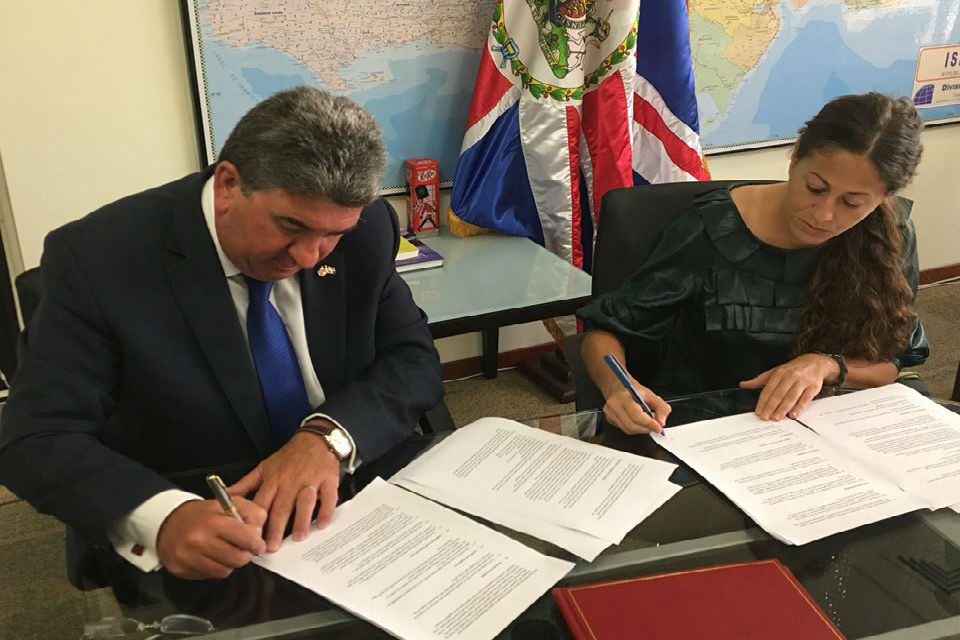Geological disposal means permanently disposing of the most hazardous types of radioactive waste in a specially designed facility between 200 and 1,000 metres underground. Harmful quantities of radioactivity will be prevented from reaching the surface by a number of barriers. These include the:
- design of the facility – sealed vaults and tunnels deep underground
- design of the containers (packaging) for the waste – secure, engineered containers of metal or concrete
- type of surrounding rock
The depth of the facility will protect the radioactive waste from the effects of:
- future climate change
- human activities
The UK government has not yet decided where a geological disposal facility (GDF) will be located. It will select a site in partnership with willing communities. Formal engagement with potential host communities is expected to begin shortly.
The Department for Business, Energy and Industrial Strategy is leading the process of implementing geological disposal in England. Find out more about the UK government’s policy on geological disposal.
Radioactive Waste Management (RWM) Ltd is responsible for developing the GDF. Find out more about work to develop geological disposal.
Environment Agency’s role in geological disposal
The Environment Agency regulates the disposal of radioactive waste from:
- nuclear licensed sites – for example, those carrying out activities such as nuclear power generation, nuclear fuel manufacturing and reprocessing or radioactive waste processing and disposal
- other premises that use radioactive substances – for example, hospitals and universities
Disposal includes:
- discharges into the air, surface water and groundwater
- disposals by transfer to other sites
- disposal to land – including geological disposal
The Environment Agency is responsible for making sure that the developer and operator of a GDF meet the high standards it has set to protect people and the environment. This includes during the design, development, operation and closure of the facility.
The Environment Agency considers that the geological disposal of long-lived radioactive waste can provide a safe and sustainable solution. It supports the implementation of geological disposal because radioactive waste stored at the surface would need to be managed for several hundred thousand years.
The Environment Agency will not be involved in the decisions to select a potential site for a GDF. Its regulatory role will start after a site (or sites) has been selected for further investigation. But, during site selection, the Environment Agency will be available to support discussions with communities, local authorities and others considering hosting a GDF. It will provide information and advice on environmental protection. It will also explain how its work will help protect people and the environment now and in the future – during the development, operation and closure of a GDF.
Joint regulation of RWM
The Environment Agency will regulate a GDF jointly with the Office for Nuclear Regulation (ONR). The ONR is responsible for regulating:
- civil nuclear safety
- radioactive material transport safety
- nuclear security
By working together, the two regulators will make sure that the developer and operator of a GDF meet the required high standards for:
- environmental protection
- safety and security
- waste management
- radioactive waste transportation
Before regulation starts, the Environment Agency and ONR are scrutinising RWM’s work. They are doing this in the early stages of implementing geological disposal so RWM can understand what they need to do to:
- provide advice to waste producers so waste packaged at sites is suitable for disposal
- prepare applications for the permits and licences they will need
In addition, the regulators are reviewing RWM’s generic disposal system safety case which identifies:
- the likely hazards and risks of a GDF
- how the risks will be controlled
- the systems that will make sure controls are applied to meet required standards
Scrutiny of the generic safety case will help inform RWM what they need to do to develop the site specific safety case once a site has been chosen for the GDF.
The Environment Agency and ONR provide more information about their joint scrutiny work through regular reports such as their annual scrutiny reports and regulatory scrutiny reports. These provide summaries of work carried out under the joint scrutiny programme.
Regulating each stage of development
Regulation will start when the developer wants to begin surface-based site investigations using boreholes.
A GDF will need to be regulated for many decades – possibly for more than a hundred years. After a GDF has closed, regulatory control will only end when the operator has met requirements to protect people and the environment in the long term.
The Environment Agency will regulate the development of a GDF using ‘staged regulation’. The purpose of staged regulation is to make sure that the facility is developed safely and securely. It must be done in ways that properly protect people and the environment and do not undermine the long-term performance of the GDF.
The developer will need Environment Agency approval before they can start each of these development stages:
- surface-based site investigation using boreholes
- underground investigation
- building the infrastructure for the disposal facility
- operating the facility – disposing of radioactive waste
- closing the facility
Throughout each stage the relevant regulators will inspect and check the operator has complied with the permissions granted. They will take any enforcement action needed if they identify non-compliances.
The regulators will review these permissions regularly to make sure they remain appropriate.
Surface-based site investigation
A developer will need to apply for an environmental permit when they want to drill boreholes, for example to find out about the geology and hydrogeology at a proposed location for the GDF. At this stage the Environment Agency would expect the developer to provide information about how they will:
- minimise any environmental damage that could be caused by borehole drilling
- remediate the site after drilling
The Environment Agency would also expect the developer to provide an initial site evaluation with information about:
- the feasibility of building a GDF at the potential site
- whether the GDF could meet regulatory requirements
The Environment Agency will only grant the permit if the developer meets the necessary regulatory requirements.
To comply with a permit, the developer will also need to:
- control any discharges to air and water
- protect groundwater and surface water
- prevent land contamination
- manage waste appropriately
- carry out an environmental monitoring programme
An environmental permit can cover a group of boreholes at a given location. If the developer decides to carry out investigations at different locations, they will need a separate permit for each location. They would also need to apply for a revised permit if more than one phase of borehole drilling is needed at a location.
Underground investigation
The next set of regulatory decisions will be made when the developer wants to carry out underground investigations at a possible site. This will provide further information, for example, about the geology and hydrogeology at the depth they plan to build the GDF.
As part of their underground investigations, the developer will need to build access shafts and tunnels. It’s likely they will also need facilities on the surface, for example to provide ventilation and access.
Both the Environment Agency and ONR will make decisions about whether to allow underground investigation to begin. At this stage the Environment Agency would expect the developer to provide additional information from site investigations to support their application for a revised permit. This information may include assessments of the feasibility of building a GDF.
The Environment Agency will only grant a revised permit if the application meets its regulatory requirements. It would also expect a developer to be able to demonstrate that underground investigations will not affect the safety of the candidate site.
Building the infrastructure
Building activities could include excavating vaults to dispose of the radioactive waste and tunnels to access the vaults. Construction is also likely to start on the surface facilities where radioactive waste will be received and securely stored before it is transferred underground for disposal.
The developer will need an environmental permit to cover this stage of the construction activity.
At this stage the developer will need to provide the Environment Agency with a comprehensive and robust Environmental Safety Case. This must demonstrate that a GDF at the site would meet regulatory requirements for disposing of radioactive waste. This evidence will help the Environment Agency decide, in principle, if they could eventually grant an environmental permit to dispose of radioactive waste.
Operating the facility: disposing of radioactive waste
Before the operator of a GDF can receive the first waste packages they will need an environmental permit to dispose of radioactive waste and permissions under the nuclear site licence. They will need to provide evidence that:
- the operations will be safe and secure
- once the facility is closed, people and the environment will be protected in the long term
The environmental permit for the operational stage will include conditions that set the:
- limits on radioactive and non-radioactive discharges to air and water from storage facilities on the surface and underground operations
- requirements for disposing of radioactive waste appropriately – possibly including restrictions on the type of waste that can be disposed of
The operational stage is likely to last 100 years or more. During that time the operator will need to regularly review its safety, security and environmental safety performance. They will need to submit reports of these reviews to the Environment Agency and ONR. The regulators will look at the updated evidence and decide whether the operator is continuing to provide a high standard of protection for people and the environment.
If the operator is not meeting its regulatory requirements, the regulators can take enforcement action. This could include stopping disposal operations until the operator has taken the action needed to comply with their permit or other permissions.
Closing the facility
The operator will need to have plans in place for closing and sealing the GDF before it can start to dispose of any radioactive waste. The regulators will scrutinise these plans to make sure they meet regulatory requirements for the long term protection of people and the environment. The regulators expect the operator to regularly review and update these plans to reflect any new knowledge gained from research, development or demonstration studies.
Once the operator wants to close the facility, the plans will support their application for regulatory permission to close the GDF. This includes dismantling and removing the surface facilities.
The operator must demonstrate that the way the GDF has been closed and sealed meets the conditions of the environmental permit and nuclear site licence. If the operator can show that the safety and security requirements for closure have been met, their nuclear site licence can be withdrawn.
For some time after the nuclear site licence has been withdrawn, the operator will still have responsibilities under their environmental permit for the GDF. The Environment Agency will need to be satisfied that the site will meet standards to protect people and the environment before they will allow the operator to surrender (give up) their environmental permit.
Guidance for the developer
The Environment Agency has published guidance on the principles and requirements that the developer will need to comply with to be granted an environmental permit. The guidance covers the development, operation and eventual closure of a GDF for radioactive waste.
Evidence reports
The Environment Agency has also published technical studies related to geological disposal.
For more information about the Environment Agency’s role in the regulation of geological disposal email geological.disposal@environment-agency.gov.uk.


